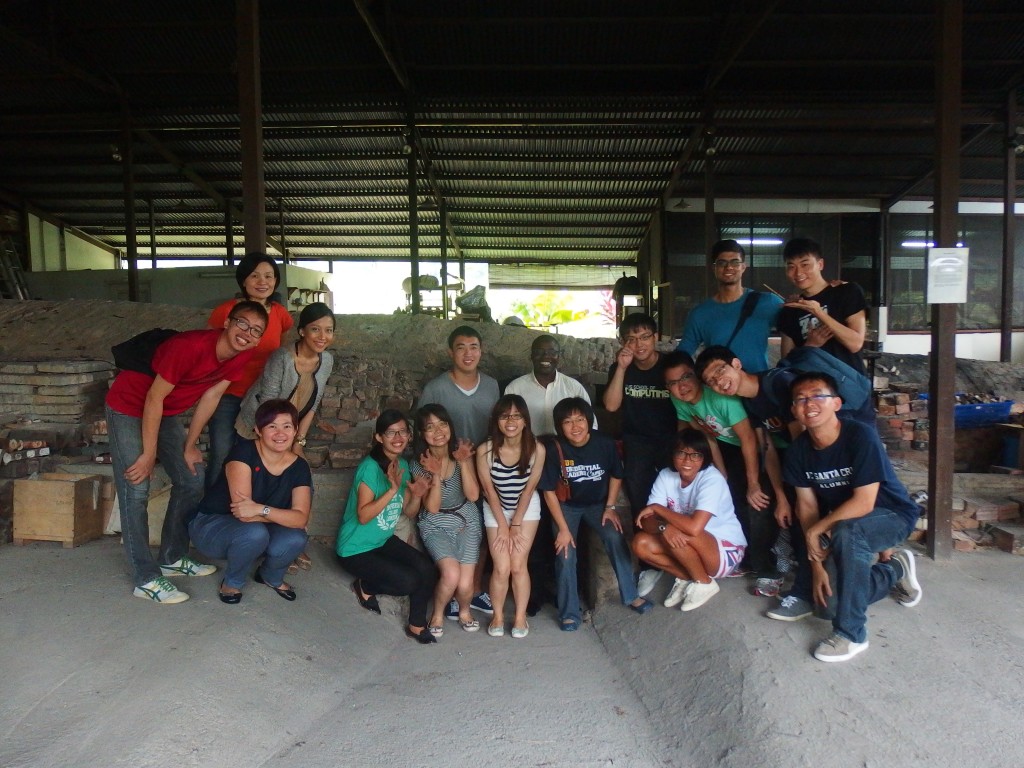The University is no longer a place just for purely academic pursuits – it must also equip its students with the necessary competencies (such as intellectual liveliness, inquisitiveness, inner resilience, etc.) to ensure that they are well prepared for the global community and workplace.
This is the opportune time for me to welcome the ‘newest kid on the block’ among the Residential Colleges at NUS – Ridge View Residential College (RVRC). One of the key aims of RVRC is to conceptualise and implement a well-integrated programme to nurture future-ready graduates. The College welcomed its pioneer batch of 100 first-year undergraduates last month and along with 14 peer mentors; they have all settled into the Tower Block of the Ridge View Residences. The students come from five Faculties, namely Faculty of Arts and Social Sciences, School of Computing, School of Design and Environment, Faculty of Engineering and Faculty of Science. They will spend their freshmen year in this unique living-learning programme, which we hope will help them make a smooth transition into university life.
The residential colleges, halls and residences are indeed a good setting to help students discover the special qualities in each of them, while concurrently developing their intellectual capabilities. RVRC believes in harnessing its inter-disciplinary approach to curriculum to give students wide exposure to different approaches, perspectives and ideas. The modules which the College offers, along with the communal living that comes with on-campus housing, will ensure that students have a well-rounded experience in the very crucial first year at NUS.
Each student enrolled in this one-year residency programme reads three core modules – GEM1917, an inter-disciplinary as well as the anchor module focusing on sustainability; ES1601, which emphasises professional and academic communication required in the University and the workplace; and WR1401, which weaves in sports, career readiness, and experiential activities for team and personal effectiveness. These three modules are year-long and are designed to fit into each student’s core modules read within their own scope of work at their respective Faculties/Schools.
Our approach gives students the time and space to understand, dialogue with various audiences including their peers, and internalise the concepts discussed. It also allows students to develop a comprehensive appreciation of and an enriched discussion on the challenges of specific topics. Each module is taught by dedicated instructors from an extensive pool both within and outside the NUS community. GEM1917 is particularly appealing, which I suspect is partly due to the strong interest generated by ongoing debates on sustainability. Senior undergraduates have written to the College to ask if they can sign up for the module!
One of the objectives of creating residential colleges is to ‘purposefully create settings that maximise peer-to-peer learning’[i]. RVRC students can also be rest assured, knowing that the Peer Mentors (senior undergraduates who have been carefully selected to be part of the RVRC community to provide peer support to the freshmen residents) will be on-hand to guide them during the courses. Peer learning has proven to be very effective on university campuses globally and I am confident it would be useful at RVRC. Early indicators are already proving to be positive.
The other exciting development at RVRC, which I am confident will become a pull factor for RVRC, is how graduate readiness is interwoven into the RVRC programme. The RVRC team led by Professor Adekunle Adeyeye, Master of the College, firmly believes that it is never too soon to expose students to the workplace. He is hard at work, engaging industry representatives from various disciplines and fields in the College’s industry mentorship scheme and dialogue cum networking series. These individuals and firms will be important partners who will provide opportunities for the RVRC students to learn about the various industries that they can aspire to work in or consider when internships or industrial attachments places come around. This squares well with the University’s goal to intensify strategic partnerships in the long term across industry and other educational and research institutions.
As in other halls and colleges, co-academic activities are grown organically. The RVRC family is made up of a wide spread of students from accomplished musicians and creative artists to dedicated community leaders and athletes. The students have banded together to form interest groups amongst themselves to plan and organise the co-academic activities that they would be interested in. The main facilitators are the Peer Mentors. Our first-year residents have been most responsive, enthusiastic and competent in organising themselves quickly and systematically. This is heartening for the RVRC administration as these are the exact values which they had hoped to see in the students when the programme was initially mooted.
I am pleased that the College has gotten off on a positive and exciting start. Plans are in place for a major refurbishment of Ridge View Residences to further enhance the living and learning environment. In the meantime, a budding community is forming and taking root, and we look forward to seeing RVRC as a vibrant and valued Residential College at NUS.

Nice college!
exquisite
http://www.singaporeescort.agency/